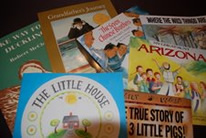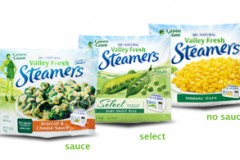Dirty Dozen and Clean Fifteen
May 5, 2014Written by Marykate O’Malley, mother of three wonderful children, Gladwyne PA
It’s produce season friends and I couldn’t remember if corn was on the “dirty dozen” list or “clean 15” and thought I would share the results with you. It’s clean, yay! The Environmental Working Group creates a list every year of the foods with the most pesticides then those with the least. Here it is below.
I was just discussing pesticides with my son and why farmers use them, why they are bad for us and he says, “why don’t they grow crops in a greenhouse?” My idea guy!
It’s Cinco de Mayo so I had to use an avooado! My most favorite veggie – or is it a fruit – it has seeds. Wait, is a pit a seed? Anyone know?!
Here is the EWG list of the “Dirty Dozen” fruits and vegetables:
- Apples
- Strawberries
- Grapes
- Celery
- Peaches
- Spinach
- Sweet bell peppers
- Nectarines
- Cucumbers
- Cherry tomatoes
- Snap peas
- Potatoes
Clean 15
- Avocados
- Sweet corn
- Pineapples
- Cabbage
- Sweet peas (frozen)
- Onions
- Asparagus
- Mangoes
- Papayas
- Kiwi
- Eggplant
- Grapefruit
- Cantaloupe (domestic)
- Cauliflower
- Sweet potatoes
I did not know cauliflower was on here! I am going to print this and keep in my car until I have it memorized. I have the dirty dozen down but can’t remember all the clean ones.
Happy shopping!
Share this post
You might like...
Category: Brilliant, Cookin', For Moms, For The Home, Kitchen, Mission Control, Random and Fun






 Your Phone Is Not Your Own
Your Phone Is Not Your Own Joy and Happiness
Joy and Happiness  Really? Vegetables?
Really? Vegetables? American Porches
American Porches




Joanne
on May 6, 2014 8:14 amThanks for sharing. It is noteworthy to add, that going organic is the best!! Yes I know it can be pricey but if we “vote with our pocketbook”, we send a message out there to the stores and farmers, and if more people want it , more farmers will switch and the price comes down, eventually.
Another option is joining a CSA, which was written about on this blog in the past. Find one in your area-it stands for Community Supported Agriculture, and you get a “share” of organic veggies each week, at a better price.
We must also be aware that the bee population is dwindling, and this WILL be catastrophic in the future… Huge corporations like Monsanto, who make the pesticides, only care about their profits now, not the future… So buying organic will also help with this potential disaster. Also, buy local honey! We can all make a difference!!